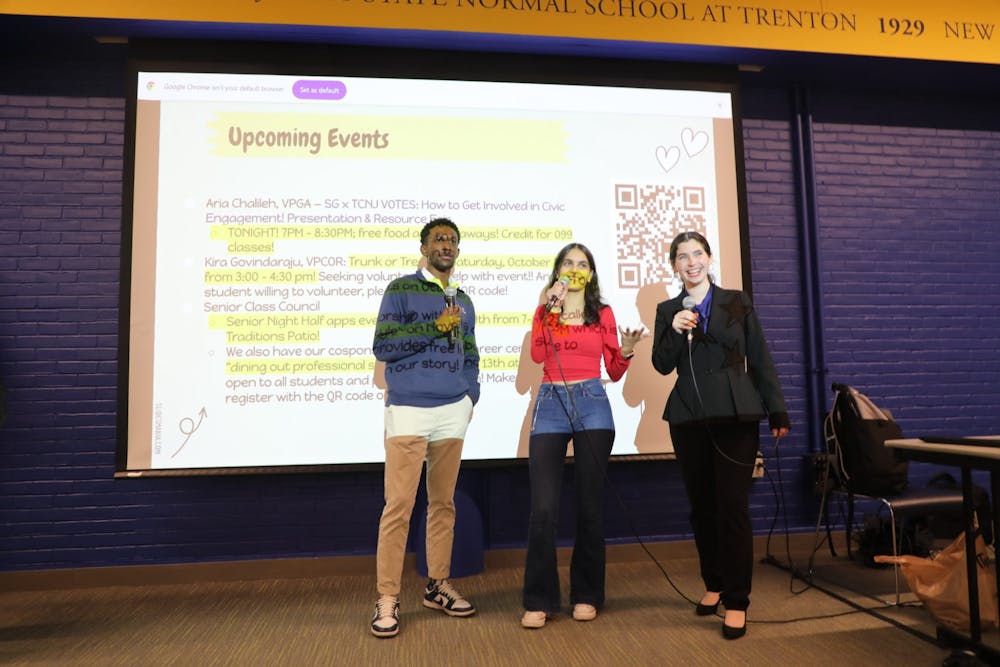Raeanne Raccagno
Staff Writer
Student Government talked about the policies for adding a co-op experience to the College and recognized the pickleball club at its general body meeting on Oct. 16.
Jackie Anderson, SG’s vice president for academic affairs, presented updates to the College’s internship policy, which focuses on adding a co-op opportunity for students.
Usually, internships are one-term jobs that can be part or full-time and paid or unpaid. Co-ops are full-time, commonly paid gigs that give students more responsibilities and an experience that is extremely similar to being in a specific work field.
Currently, only the School of Business offers a co-op program to students at the College. It maintains long-term relationships and partnerships with multiple international and regional employees, according to its webpage.
Originally, the charge for more co-ops was sent by the chemistry department. A LIONS Plan working group was working on building a fourth co-op year in the undergraduate program.
“The specific charge to CAPs [committee on academic programs] was to define, delineate, differentiate internships and co-ops and also pull data from other institutions because we want to know how other people are doing it,” Anderson said. She also explained the committee wants to include graduate students in the working experience as well.
According to Anderson, in order to have a co-op as an undergraduate, students would need to have completed 16 course units with at least three of them being at the College. Students would also need a minimum of a 2.0 GPA to qualify.
Students could complete the co-op for between one to three course units for their undergraduate degree. They would have to do a minimum of 300 hours for one course unit. The maximum amount of units they could do per semester would be three, or 600 total hours — a 40-hour work week.
As for graduate students, they would need to have completed six credits at the College before or concurrent with an internship. They could do a minimum of three credits worth of the co-op, or 300 hours total, and they could do a maximum of nine credits per semester, or 600 hours total.
“It's a new policy, so changes are being made constantly,” Anderson said. “This is just what we have so far and we want to make sure that all the students, any of their opinions, were being heard and their perspectives were being accounted for.”
During new business, the prospective student organization Pickleball Club came in for a presentation to be acknowledged as a recognized student organization, or RSO. Before becoming recognized, the club would hold weekly meetings where students played in mini-tournaments, but there would be groups of people waiting for their turn due to equipment shortages. This is one of the reasons it wanted to be an RSO, so it could receive funding.
The pickleball group said it has an average of 30 people who attend its weekly games and has had up to 70 students attend. The executive board is also looking to be a general interest club and not a sports club, so they would not be traveling to other college campuses to have competitions.
“We're more interested in creating community than competition,” said Bella Donaldson, a senior biology major and the co-president of the Pickleball Club.
The general body passed Pickleball with no hesitation and invited them back in with a round of applause to let them know of their new recognition. Looking ahead, SG will hold its annual State House general body meeting at the Trenton State House on Nov. 13, according to Aria Chalileh, SG's vice president for governmental affairs.
Editor’s note: One of The Signal’s news editors, Kate Zydor, is Student Government’s Vice President for Student Services. She does not assist with writing or editing stories about Student Government.







